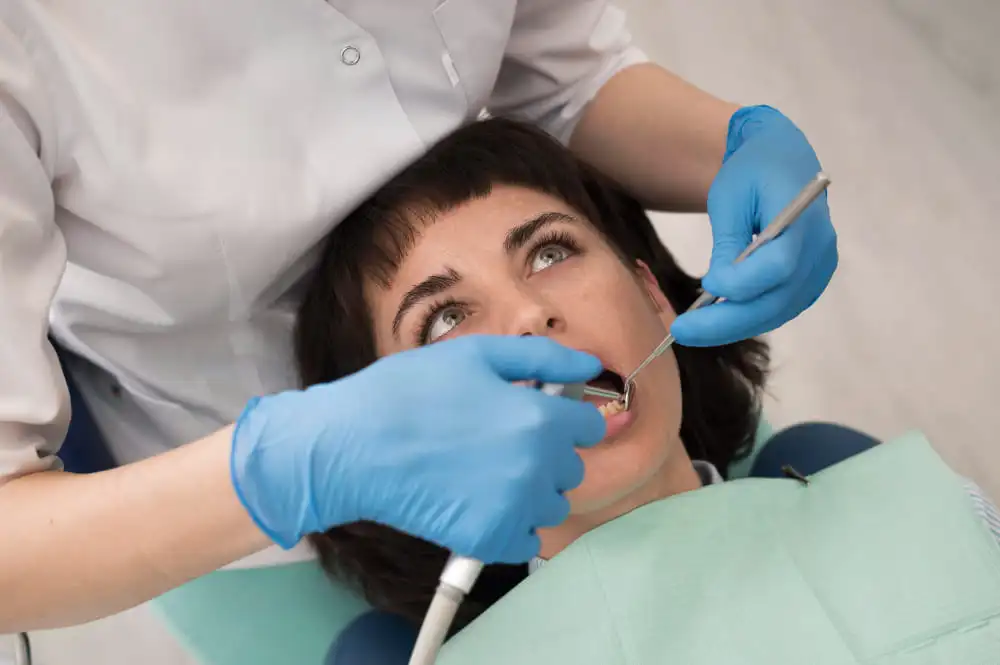

Crooked teeth may not only impact your smile. Though at a glance they may appear purely cosmetic, crooked teeth can have wide-reaching effects on your overall oral health. If your teeth are crooked, you could struggle with eating, speaking and keeping them clean. In this article, we’ll take a look at how crooked teeth can negatively impact oral health and what you can do to solve the problem.
Crooked teeth are not just about aesthetics. They can lead to several oral health issues, such as:
If your teeth are crooked they are also harder to properly clean. So crooked teeth can make it hard to brush and floss in between properly. This can cause plaque and food particles to build up in those places which can cause tooth decay and gum disease.
If teeth are not working together, some teeth could have uneven pressure. This can result in accelerated wear and abnormal contact patterns of the teeth over time. At worst, it can cause teeth to break, making them to take on more weight when you bite and chew.
Misaligned teeth can influence the way your jaw works. For instance, an incorrect bite (malocclusion) underlies many cases of temporomandibular joint (TMJ) dysfunction. Jaw, head, and neck pain may result from TMJ disorders. In some cases, it can cause difficulty in opening and closing the mouth properly.
Misaligned teeth may also interfere with your ability to pronounce certain sounds or words properly. If you have an underbite, overbite or crossbite it may be difficult to speak without distortion. This can be very frustrating if it causes problems when you are trying to communicate at work or in a social environment.
Apart from the physical health implications, crooked teeth can also impact your self-confidence. Having crooked or crowded teeth is often thought to be unattractive, and a lot of people are embarrassed at their smile as a result. This is what can influence the way you treat people, whether in personal or professional settings. Perhaps you refuse to the smile, or even talk with anyone, because of how you assume you look. This can in turn decrease your overall confidence and quality of life.
Life is so much easier after your teeth are straight. You can clean all surfaces of the teeth more easily, so the chances of plaque growth decrease. This decreases the likelihood of cavities and gum disease.
Straightening crooked teeth can help to take pressure off the jaw, and alleviate pain and prevent issues associated with TMJ. Correct alignment enables your jaw to move more naturally, and may help you avoid pain down the road.
If crooked teeth are causing you to stutter a bit, repairing them can provide a boost in your confidence to speak again. Properly aligned teeth help the mouth make sounds, facilitating clearer pronunciation and allowing you to speak.
Straighter teeth can lead to a new-found confidence. Now you don’t have to worry about how your teeth look you’re more likely to smile and have engaging conversations.
There are several solutions to crooked teeth. The choice will be made depending on how crooked your teeth are and what your opinion on braces is. Common treatments Some of the most popular treatments are;
One of the most effective ways to straighten misaligned teeth is using traditional braces. Metal braces employ brackets and wires to slowly shift teeth into proper alignment. They may take months or even years to produce the full effect you are seeking, however, braces are a reliable way to correct a variety of misalignment problems.
One common option is Invisalign. These are clear, removable retainers that work to slowly reposition teeth. They are virtually invisible, removable for eating or cleaning and thus far more practical for many people. Invisalign is most appropriate for mild-to-moderate misalignment, and can treat adults as well as teenagers.
If you have minor misalignment, veneers are a possibility. Veneers are thin covers that are placed over your teeth, and they are either made of porcelain or resin. Though they don’t actually straighten the teeth, they can give the appearance of a more even smile by concealing minor defects and crookedness.
Your dentist may suggest a retainer to keep the results in place after braces or Invisalign. Retainers are personalised appliances that help maintain teeth in their corrected positions after treatment. If you do not use your retainer, your teeth will begin to move back to their original place.

Crooked teeth can do more damage than just ruining your looks. They make teeth harder to clean, wear them down, cause jaw problems and can make it more difficult for you to speak. Fortunately, there are many different treatment choices offered to correct them, from braces to Invisalign. If you are disturbed by your crooked teeth, be sure to see a dentist. And, by correcting alignment issues, you can enhance not only your oral health, but also your self-esteem, and quality of life.
If you take care of your teeth and get the treatments you need, you can avoid long term oral health issues. Whether braces, Invisalign or something else, addressing crooked teeth is an investment not just in your appearance but in your overall health.
Yes, crooked teeth can be harder to clean, making cavities and gum disease more likely.
Yes, crooked teeth can lead to jaw pain or discomfort because the pressure of biting is not distributed evenly.
Yes, severely crooked teeth can have an impact on the clarity of speech, leading to lisps or other types of speech problems.
Yes, there can be abnormal wear on teeth from tooth misalignment and over time it can cause other issue with teeth.
Yes, the misalignment can cause premature wear on specific teeth which would otherwise sustain damage over time.